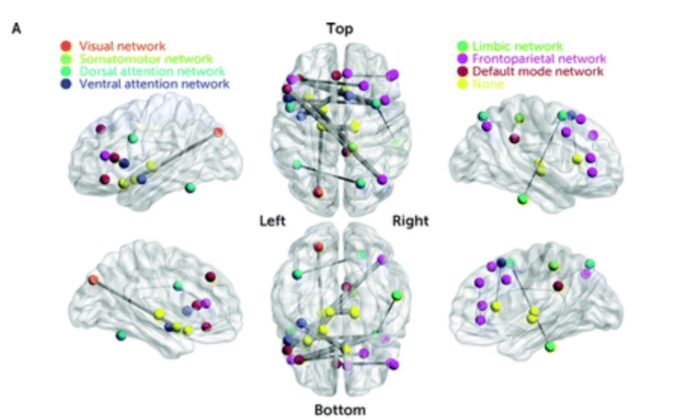Researchers have shown for the first time what happens to a person’s brain after they undergo the depression treatment known as repetitive transcranial magnetic stimulation (rTMS). The study’s findings were published in the American Journal of Psychiatry today.
rTMS is a depression treatment that is often employed when other treatments, such as drugs, have failed to help a patient. Antidepressants are thought to be ineffective in roughly 40% of persons with serious depression.
A device with an electromagnetic coil is put against a patient’s scalp during a rTMS session. The device then emits a painless magnetic pulse that activates nerve cells in the dorsolateral pre-frontal cortex, a brain region implicated in mood regulation.
Despite its effectiveness, the mechanics underlying how rTMS affects the brain are not fully known.
Dr. Fidel Vila-Rodriguez, an assistant professor in UBC’s department of psychiatry and researcher at the Djavad Mowafaghian Centre for Brain Health, says, “When we first started this research, the question we were asking was very simple: we wanted to know what happens to the brain when rTMS treatment is being delivered.”
Dr. Vila-Rodriguez and his team used a magnetic resonance imaging (MRI) scanner to administer one cycle of rTMS to patients in order to address this question. The researchers were able to monitor changes in the brain in real time since the MRI can assess brain activity.
The researchers discovered that activating the dorsolateral prefrontal cortex activated numerous other brain regions. These other areas are involved in a variety of activities, ranging from emotional regulation to memory and motor control.
The individuals were then given another four weeks of rTMS treatment, and the researchers looked to see if the active regions were linked to patients having reduced depressive symptoms after the treatment finished.
“We found that regions of the brain that were activated during the concurrent rTMS-fMRI were significantly related to good outcomes,” Dr. Vila-Rodriguez explains.
Dr. Villa Rodriguez hopes that the findings of this new map of how rTMS stimulates different sections of the brain can be used to identify how well a patient is responding to rTMS treatments.
“By demonstrating this principle and identifying regions of the brain that are activated by rTMS, we can now try to understand whether this pattern can be used as a biomarker,” he says.
Dr. Vila-Rodriguez is now looking at using rTMS to treat a variety of neuropsychiatric illnesses. He has obtained funding from the Djavad Mowafaghian Centre for Brain Health Alzheimer’s Disease Research Competition to investigate rTMS as a technique to improve memory in individuals with Alzheimer’s disease symptoms. He also received funding from the Canadian Institutes of Health Research (CIHR) to investigate whether variations in heart rate can identify rTMS brain activation patterns.
This type of research, according to Dr. Vila-Rodriguez, should stimulate greater general acceptance and accessibility of rTMS treatments across the country. rTMS is still not widely available, despite being approved by Health Canada 20 years ago. Some private facilities in British Columbia provide rTMS, however, it is not covered by the provincial health plan.
You were reading: This is how our brain reacts during depression treatment
